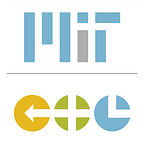Evaluating the Benefits of Blockchain Technology in Supply Chain Finance
By: Patara Panuparb · First published by Supply Chain Management Review on July 26, 2019
Digital transformation has disrupted different industries and commercial activities, including supply chain finance (SCF). During the past few years, blockchain technology has shown great potential to disrupt existing supply chain finance solutions because it can increase the efficiency of invoice processing and provide more transparent and secure transactions.
However, while the benefits of applying blockchain solutions in SCF may be obvious, many businesses are reluctant to adopt the technology. One of the most common questions is whether blockchain is a cost-effective replacement for paper-based invoices and platforms. Since research on the topic is scarce, the answer to this question is still unclear.
This MIT CTL research project provides some answers by shedding light on the benefits and costs associated with innovative blockchain solutions for participant SCF businesses.
Quantifying the value
Blockchain technology offers many advantages in the SCF space, including more efficient invoice processing, real-time validation of invoices, irreversible transactions, easy and fast supplier onboarding.
Among these benefits, the efficiency of invoice processing is considered to be the most important, since it directly determines how fast suppliers receive the working capital they need. The faster the process, the more working capital can be unlocked.
The research focused on evaluating this particular benefit. The approach taken was to develop a cost-benefit model to quantify the net value of implementing blockchain-based SCF solutions and apply the model to a real-world case study in the hypermarket industry in Thailand.
Cost-effective — but not for everyone
A blockchain-based SCF arrangement involves four parties: the supplier, the buyer, the funder, and the platform provider. In the case study used, the funder is one of Thailand’s leading commercial banks, the buyer is a company in the hypermarket industry that is a customer of the bank, and the supplier sells food and beverage products to the buyer. The supplier uses an SCF system provided by the funder to improve the flow of working capital.
The research found that the total net benefit increases by 13% with the use of smart contract technology through the blockchain platform (electronic contracts housed on a blockchain that are automatically executed), and by 24% with the application of internet-of-things (IoT) and blockchain-based systems.
However, while the total net value is positive, the benefits to each party are not always positive.
Suppliers gain if the amount that they pay in blockchain platform fees is less than the benefit earned from unlocking working capital. Therefore, a participant supplier needs to carefully consider the platform fee they have to pay when deciding whether or not the solution makes sense financially.
Buyers do not directly benefit from unlocking working capital through blockchain technology. However, the buyer is the participant that usually initiates and facilitates the deal between the supplier and the funder. Given this status, the buyer might use bargaining power to negotiate an extended due date with the funder, so that they can earn benefits from switching from a traditional to a blockchain-based SCF solution.
Funders can accrue benefits differently. Since relationships with the supplier and buyer are similar, funders gain more money from a longer duration of financing due to the shorter processing time made possible by blockchain technology.
Regarding the blockchain-based platform provider, they benefit directly from the platform fee paid by the supplier. Given that the supplier can calculate the benefits derived from blockchain technology and the break-even point of using such a solution, the platform provider might consider setting the platform fee at a lower value than the break-even point to attract the supplier to use the blockchain-based SCF platform.
Check the benefits
Overall, the research results suggest that blockchain technology might increase the total net benefit for the parties involved in an SCF arrangement as a result of improving the efficiency of invoice processing. However, the gains can vary for each party, so it is important that the participants carefully evaluate the potential returns.
Editor’s Note: Every year, 40 or so students in the MIT Center for Transportation & Logistics’ (MIT CTL) Master of Supply Chain Management (SCM) program complete one-year thesis research projects. The students are early-career business professionals from multiple countries with 2 to 10 years of experience in the industry. Most of the research projects are chosen, sponsored by, and carried out in collaboration with multinational corporations. Joint teams that include MIT SCM students and MIT CTL faculty work on the real-world problems. In this series, we summarize a selection of the latest SCM research. The SCM research project Cost-Benefit Analysis of a Blockchain-based Supply Chain Finance Solution was authored by Patara Panuparb and supervised by Dr. Inma Borrella, Postdoctoral Associate, MIT CTL, and James Blayney Rice, Deputy Director, MIT CTL. For more information on the research please contact Inma Borrella at: inma@mit.edu.
